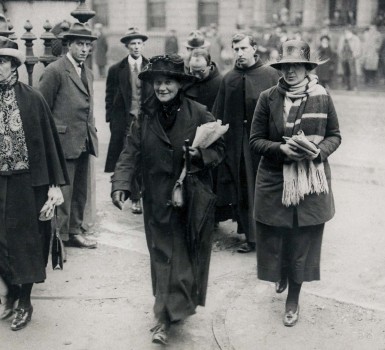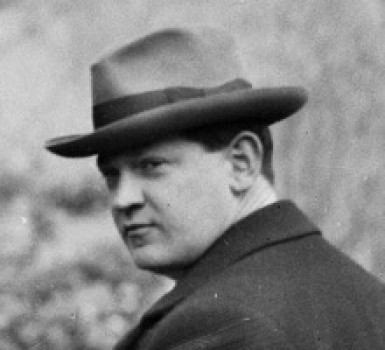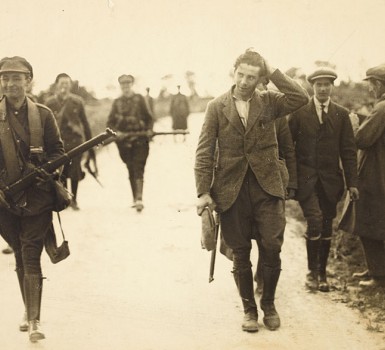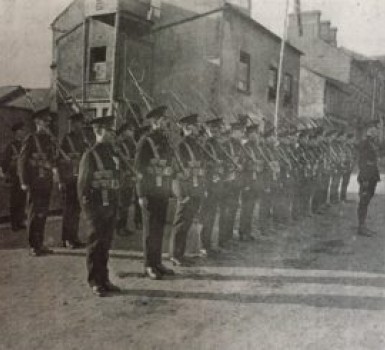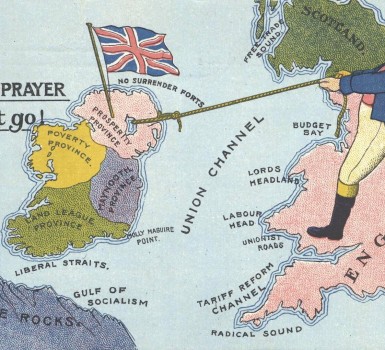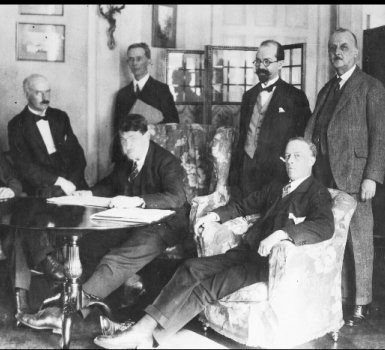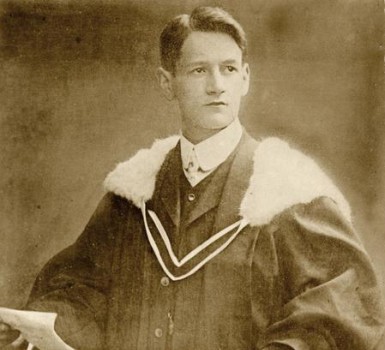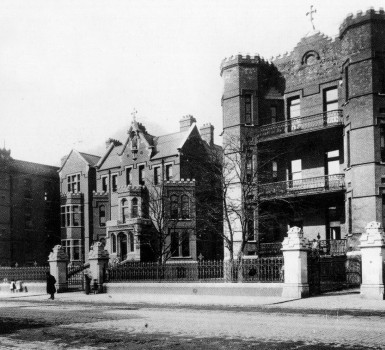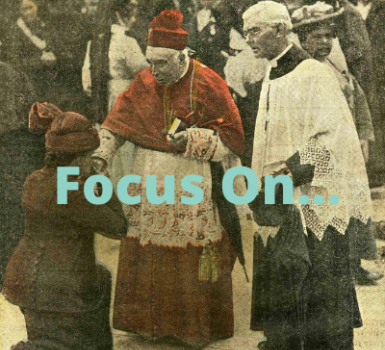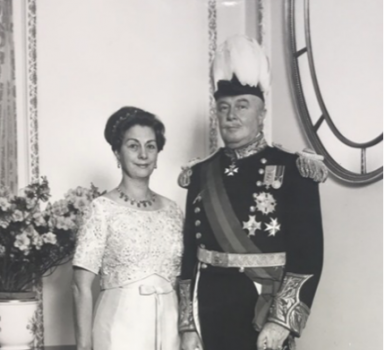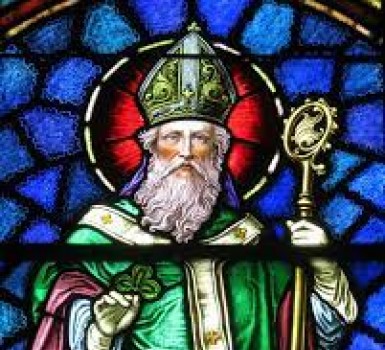Focus On … The Northern Ireland Election
27 May 2021

100 years on from the first election to the Northern Ireland parliament, Dr Ryan Mallon explores how different communities, groups and political parties viewed the election, campaigned for votes, and their reactions to the result.
The first general election to the Northern Ireland parliament took place on 24 May 1921. The election was a historic one for a number of reasons. It was the first election to a fully established devolved legislature in the United Kingdom (the corresponding election to the ill-fated Southern Ireland Home Rule parliament eleven days before was completely uncontested, and all but four of those elected refused to recognise it). The election was also the first in the UK’s history to use the proportional Single Transferable Vote (STV) system.
The election campaign centred almost completely upon the uncertainty surrounding Ireland’s constitutional future. The Unionists, under the leadership of James Craig, were anxious to consolidate the new Northern Ireland parliament and Government of Ireland Act by securing a clear majority. On the other hand, Sinn Féin and Joe Devlin’s Nationalists co-operated on a combined anti-partition and abstentionist platform, with the aim of delegitimising and ultimately dismantling the new institutions.
While other important political and social issues in this period – such as labour and women’s rights, the future of the Ulster economy and agriculture, and the temperance debate – continued to bubble under the surface throughout the campaign, they were in the end marginalised or in many cases completely concealed by the all-encompassing debate on partition and the Unionist desire to cement their position in the new political order. In fact some Unionists, particularly those in favour of prohibition, expressed discontent at the perceived lack of policy in Craig’s manifesto, raising the expectations of Nationalists who hoped to take advantage of the new STV electoral system.
Despite these high Nationalist hopes, the Unionists resoundingly won 40 of the 52 available seats in the House of Commons. The Nationalists and Sinn Féin took six seats each, far below their projected combined target of at least 20 seats. Perhaps unsurprisingly for such a heated campaign, turnout was 88%, the highest ever for a Northern Ireland election. In contrast to the second general election in 1925, where the effects of proportional voting and other issues came more sharply to the fore, strong Unionist organisation (perhaps best encapsulated by the infamous slogan ‘Vote Early, Vote Often’) and the party’s emphasis on the constitutional question helped secure their coveted majority.
Below you can find the wide range of views, from Unionists, Nationalists, socialists, and feminists, which dominated the 1921 Northern Ireland election campaign.
THE UNIONIST VIEW
Speech by Sir James Craig at Willowfield Picture House, Belfast, 8 February 1921
(Northern Whig, 9 February 1921)
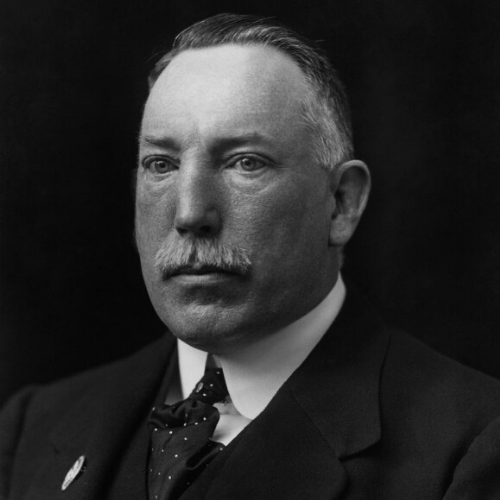
The test question at the forthcoming elections must be this:– ‘Are you a true man? Are these your colours? (Sir James held the Orange handkerchief) or are your colours those of the Union Jack?’ He had never been able to distinguish the difference between the Orange standard and the Union Jack. (Applause.) The point was, ‘Are you a good man?’ in the sense a good Ulsterman prepared with courage and determination to face the burdens which lay ahead. If he was a good man then he (Sir James) said he hoped that the Unionist electors would put him at the top of the poll, and that their majority, when they came together later on, might such as would enable them to work their Government, their Executive, in the same spirit and in the same way as Sir Edward Carson had taught them to approach great questions – in a broad-minded manner, in a spirit of tolerance, and with a single desire to help the democracy of this great province of Ulster.
Meeting of Female Voters in Coleraine, 22 March 1921
(Ballymoney Free Press and Northern Counties Advertiser, 24 March 1921)
Overhanging the six counties there was the terrible big black cloud of Sinn Féin. Owing to the operation of proportional representation the Unionists would have a smaller majority in the House than would otherwise be the case. Should there be any little carelessness or slackness on the part of loyalist voters, disloyalty to their leaders, or division in the Unionist camp, that majority would disappear. Sinn Féin would then have control, and Ulster would be voted under the Dublin Parliament. If that should happen, God help them!
A Call to the Orange Order in Northern Ireland
(Northern Whig, 11 May 1921)
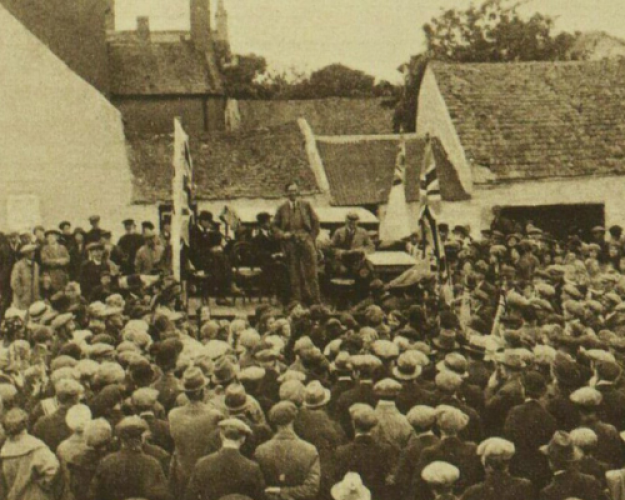
… the obligation rests upon us, as upon every Loyalist on the register, to see to it that the victory so far won is not turned into a defeat at the polls.
This is a simple and yet most honourable obligation. Never before has our Order had a better opportunity of exhibiting its discipline and strength.
Our opponents have combined against us on the single issue of “No Partition.” Therefore, we on our part must, in the first instance, defeat that combination, and then rely upon our chosen representatives to carry on the best traditions of our race by legislating wisely for the benefit of the whole community.
THE NATIONALIST VIEW
Nationalist Manifesto
(Northern Whig, 7 May 1921)
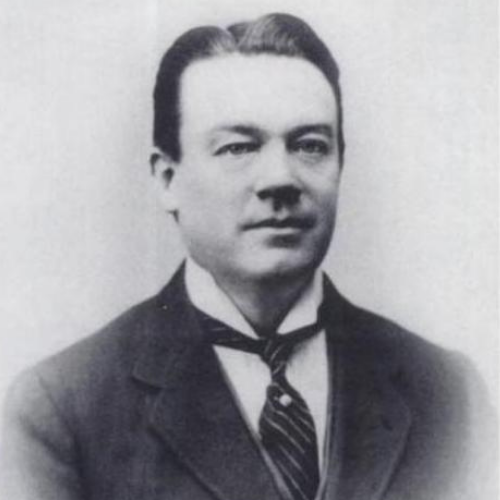
The events of the last few days have made clear the Government’s purpose. People had hoped against hope that the Prime Minister and his colleagues would at the last moment shrink from the mad gamble involved in an attempt to put in force the ill-named Partition Act. There is no longer room for hope. The historic unity of Ireland is to be violated with results disastrous to the peace and prosperity alike of the North and South.
No camouflage can completely hide the grim reality. There is no thoughtful man—Nationalist or Sinn Feiner, Southern Unionist or Ulster Covenanter—who does not realise in his inner consciousness that the setting up of a legislative divorce between the six counties and the twenty-six is fraught with evil alike to the North-East corner and to the rest of the country. The proposal is as unnatural as it is unnational. It is merely tactics gone mad. This insulting scheme is not an act of national peace and reconciliation, but a trick of English politicians.
… While it is our fixed determination not to enter this North-East Ulster Parliament, we shall labour outside with all our might to secure the unity of Ireland. For this purpose we invite the electoral and financial support of the patriotic electors of the six counties.
Pre-election Statement by Eamon de Valera
(The Times, 4 May 1921)
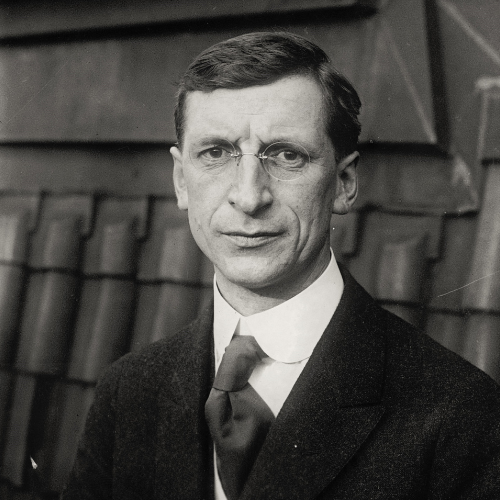
The Dáil has given its sanction to the Parliamentary elections now pending in order that the people may have an opportunity of proving once more their loyalty to the principle of Irish independence. The issue on which the electors are to pronounce is clear. You who vote for Sinn Féin candidates will cast your votes for nothing less than for the legitimacy of a Republic for Ireland against England, for freedom against slavery, for right and justice against force and wrong here and everywhere. Your answer will be heard around the world.
High Hopes for Nationalists
(Freeman’s Journal, 27 April 1921)
Sir James Craig’s manifesto has undoubtedly caused great disappointment to his followers in Belfast and throughout the North-Eastern Counties. They are not at all pleased at having a mere electioneering appeal of old-time anti-Nationalist prejudices foisted upon them.
Sir J. Craig is himself a champion of the licensing interests, whereas many of those who figure in the Unionist lists as his supporters are fanatical prohibitionists.
The practical work done by the Nationalist candidates and their supporters is already bearing fruit, and promises of assistance and support at the polls have been received from voters hitherto classed as Unionists.
LABOUR AND THE LEFT
Loyalists Gate-Crash Labour Meeting
(Northern Whig, 18 May 1921)
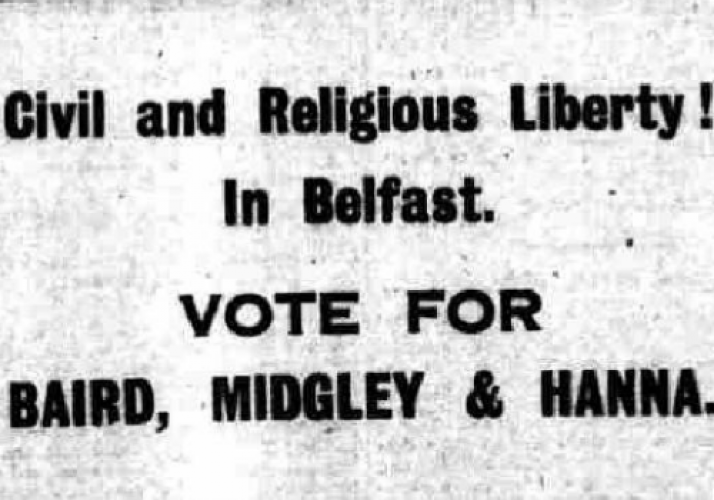
The announcement that the three eleventh-hour Socialist-Labour candidates—Councillor Baird, Mr. Henry Midgley, and Mr. J. A. Hanna—intended to address a meeting last night in the Ulster Hall gave rise to much speculation as to what the result would be. Lively scenes were anticipated, but those who turned up at the hall in expectation of a stormy meeting got something very different, and the proceedings according to programme never took place. On the contrary, a determined loyalist crowd entered the hall as soon as the doors were opened, and three socialist candidates made no appearance on the platform.
The counter-demonstration, which was a large one, was organised by Mr. Robert Boys, secretary of the Ulster Ex-Service Men’s Association, and Mr. Leo Thomas, secretary of the Belfast Branch of the British Empire Union, and started from the shipyards.
It was pointed out that the demonstration was a protest to show that Messrs. Baird, Midgley, and Hanna did not represent labour. It was emphasised that the election expenses were not provided by Belfast labour, and attention was drawn to the part they had taken in connection with the Catholic Expelled Workers’ Fund…
Bruce Wallace’s Christian Socialism: What Use Should Ireland Make of Self-Government?
(Northern Whig, 21 April 1921)
On Tuesday night a meeting was held in the Artisans’ Hall, Garfield Street, at which the Rev. Bruce J. Wallace, M.A., spoke on “What Use Should Ireland Make of Self-Government?”
Rev. Mr. Wallace said the first duty of any Government was to secure, as far as its action could, that all citizens should have conditions in which they might live out their lives to their natural and normal conclusion in old age healthily and happily.
Another was the status and honour it accorded to its women. The programme of the Belfast Women’s Citizens’ Council, which seeks to promote justice towards women in every respect and proper care for child-life, well deserved the consideration of their future Irish legislators.
The temperance party’s demands for some restrictive legislation, which were being grotesquely exaggerated and misrepresented by the liquor party, were sadly necessary under present conditions.
On the other hand, the fundamental, principal, and central measure of industrial and economic reconstruction most urgently required, which would gradually do away with unemployment and secure to all workers a freedom of contract they had never hitherto enjoyed, would not necessarily cost the community anything, though it would require Government credit for obtaining land and capital with which to start….
Now was the time for Northern Ireland to break away from old traditions. It had got its opportunity for reconstructing its social order—imperfect indeed —but it gave scope for showing what conscience and goodwill were in it. However a movement in that direction might be opposed by men with vested interests in the poverty and dependent positions of some of their neighbours, it would surely commend itself to the common sense and to the moral sense, of all thinking people.
FEMINIST VIEW
The Elections in Northern Ireland
(The Woman’s Leader, 27 May 1921)
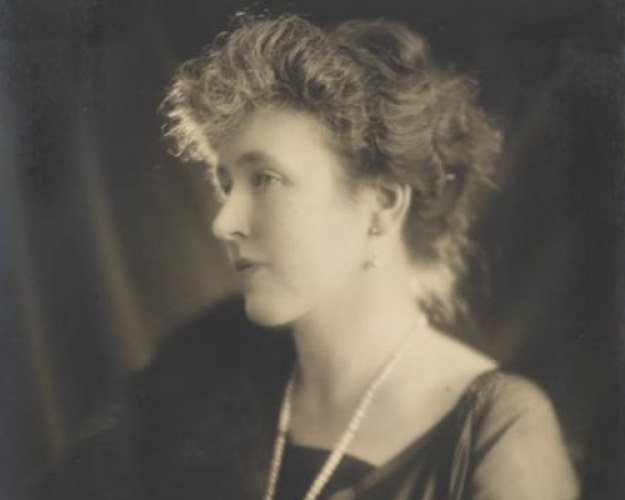
The elections for the Parliament of Northern Ireland have been held, and have, of course, been held upon one issue alone. The Sinn Fein extremists provide an appalling list of outrages to point the moral, “If you split the Unionist vote by raising any issue of social reform, you will be submerged in a Dublin Parliament, and your civic and religious liberties will be lost.”
Meanwhile, the feminist may find some compensation for the general setback to all constructive work in the humour of the situation. In spite of Sir Edward Carson's warning against the admission of women to a share in “laying the foundations of the New State”, official Unionism has felt it advisable to put forward two women candidates.
From every platform come appeals to the women voters to vote solid for the official candidates, and make no difficulties about “things such as safeguards for child life, temperance, or so-called moral reform.” Women are condescendingly told that great assistance is expected from the future women MPs in “minor matters, such as Poor Law.” Finally, they are kindly reminded that if they feel any difficulty as to voting they should consult their husbands or brothers on the matter. It is sad to think of the woeful plight of those who happen to have no male relatives.
At a mass meeting of women Unionists, Sir James Craig remarked that “women arrived by the short cut of instinct, where it took the men by the more laborious means of thought and more tedious method of reasoning to reach the same conclusion, but if the Ulster women had reached the same conclusion that he had, after thinking out the problem, then they and he would be able to go along the road together, guided by the star put up for them by Sir Edward Carson.” The Women's Advisory Council has carried on a very active election campaign, and individual expressions of sympathy have been received.
THE RESULT
Sweeping Victory for Unionists
(Yorkshire Post, 28 May 1921)
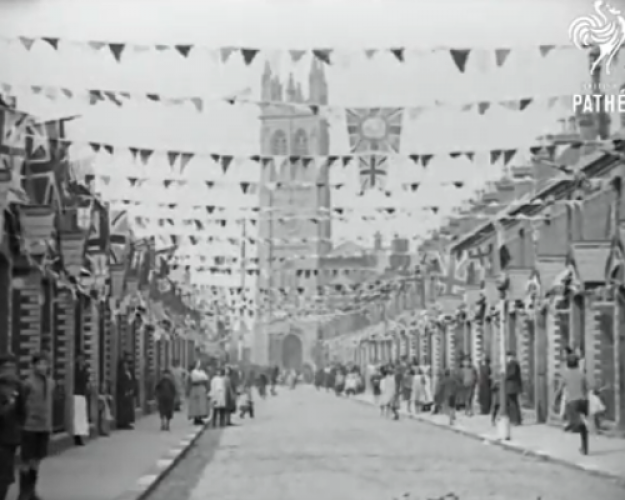
The Ulster elections, the returns for which are now practically completed, have resulted in a sweeping victory for Unionists much exceeding their earlier expectations. Every one of the forty Unionist candidates has been returned, and instead of the twenty seats they hoped to win, the Nationalist and Sinn Fein combination have succeeded in securing no more than twelve.
The result speaks highly for the judgment of the Unionist party organisers in adapting their plans to the possibilities of the proportional representation system, and limiting the number of candidates in accordance with the Unionist voting power. It demonstrates not only efficient leadership, but the solid strength of Ulster's repudiation of Republicanism and of its determination to work the Government of Ireland Act so far as it is affected.



